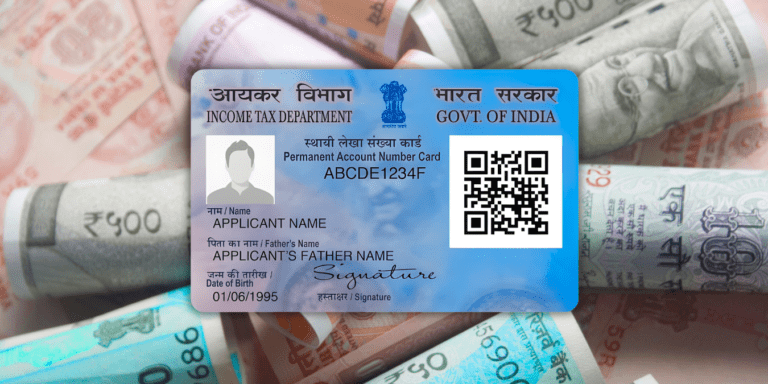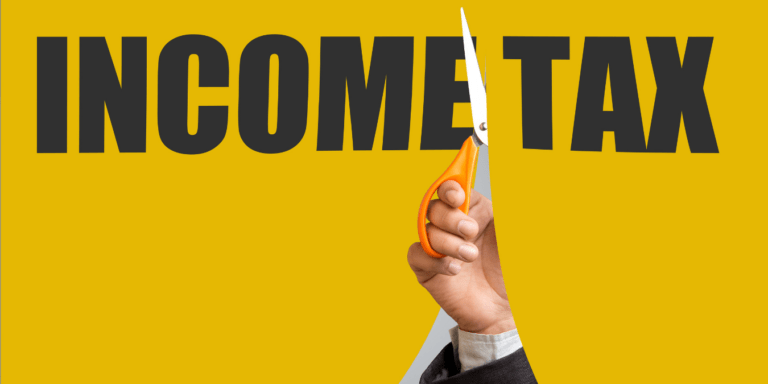
Section 80TTB exemption limit for senior citizens in the new tax regime for FY 2024-25! Learn how to maximize tax savings with a ₹50,000 deduction on interest income. Compare old vs. new regimes and optimize your tax strategy. Unlock senior citizen tax benefits now!
As India strides toward a more inclusive and simplified tax structure, senior citizens remain a focal point for tax benefits, given their reliance on interest income post-retirement. One such provision, Section 80TTB of the Income Tax Act, 1961, offers significant relief to senior citizens by allowing deductions on interest income. However, with the introduction of the new tax regime under Section 115BAC, many are left wondering: What is the exemption limit under Section 80TTB for senior citizens in the new tax regime? This blog dives deep into this question, exploring eligibility, limitations, and the latest updates for FY 2024-25 (AY 2025-26), ensuring you have all the information to make informed financial decisions, this post is your go-to guide for maximizing tax savings.
Understanding Section 80TTB: A Boon for Senior Citizens
Introduced in the Union Budget 2018, Section 80TTB is designed to provide tax relief to senior citizens aged 60 years and above. It allows a deduction of up to ₹50,000 on interest income earned from specified deposits, such as savings accounts, fixed deposits (FDs), recurring deposits (RDs), and post office schemes. This provision recognizes the financial needs of senior citizens, who often depend on interest income to sustain their retirement expenses. Unlike Section 80TTA, which offers a ₹10,000 deduction on savings account interest for non-senior citizens, Section 80TTB provides a higher limit and covers a broader range of deposits, making it a tailored benefit for India’s elderly population.
Key Features of Section 80TTB
- Eligibility: Applicable to resident senior citizens (aged 60 years or above) and super senior citizens (aged 80 years or above).
- Deduction Limit: Up to ₹50,000 per financial year on interest income from banks, cooperative banks, and post office deposits.
- Covered Income: Interest from savings accounts, fixed deposits, recurring deposits, and post office schemes like the Senior Citizen Savings Scheme (SCSS).
- Exclusions: Interest from corporate fixed deposits, bonds, or non-convertible debentures (NCDs) is not eligible.
- Documentation: No special documents are required, but bank statements, interest certificates, or Form 26AS should be maintained for verification.
This section has been a game-changer for senior citizens, helping them reduce their taxable income and retain more savings for medical expenses, daily needs, or investments. However, the applicability of this deduction under the new tax regime has sparked curiosity and confusion. Let’s explore this in detail.
The New Tax Regime: A Shift in Taxation Policy
Introduced in the Union Budget 2020 under Section 115BAC, the new tax regime offers a simplified tax structure with lower tax rates but fewer deductions and exemptions. As per the Finance Act 2024, the new tax regime became the default for individuals, Hindu Undivided Families (HUFs), and other eligible taxpayers from AY 2024-25. Taxpayers can opt out and choose the old tax regime, which allows various deductions, including those under Section 80TTB, 80C, and 80D.
Key Changes in the New Tax Regime for FY 2024-25 (AY 2025-26)
- Basic Exemption Limit: Increased to ₹4 lakh for all taxpayers, including senior citizens, as per Union Budget 2025.
- Standard Deduction: ₹75,000 for salaried individuals and ₹25,000 for family pensioners.
- Rebate Under Section 87A: Full tax rebate for incomes up to ₹7 lakh, extended to ₹12 lakh in Budget 2025 for senior citizens.
- Limited Deductions: Most deductions under Chapter VI-A, including Section 80TTB, 80C, and 80D, are not available in the new tax regime.
The new tax regime prioritizes simplicity, but it comes at the cost of forgoing key tax-saving provisions, which significantly impacts senior citizens who rely on deductions like Section 80TTB.
Section 80TTB in the New Tax Regime: The Exemption Limit
Here’s the critical answer to the question: The deduction under Section 80TTB is not available in the new tax regime for FY 2024-25 (AY 2025-26). Senior citizens opting for the new tax regime cannot claim the ₹50,000 deduction on interest income, as most exemptions under Chapter VI-A, including Section 80TTB, are disallowed. This means that while the new tax regime offers lower tax rates and a higher basic exemption limit of ₹4 lakh (compared to ₹3 lakh for senior citizens in the old regime), the loss of the Section 80TTB deduction could offset these benefits for those with significant interest income.
Why the Restriction?
The new tax regime is designed to simplify tax calculations by eliminating complex deductions and exemptions. For senior citizens, this trade-off means forgoing the ₹50,000 deduction on interest income to benefit from lower tax slabs and a higher exemption limit. However, this may not always be advantageous, especially for those whose primary income source is interest from FDs or savings accounts.
Old Tax Regime vs. New Tax Regime: A Comparison
To understand the impact, let’s compare the tax implications for a senior citizen under both regimes. Consider Mrs. Gupta, a 65-year-old resident senior citizen with the following income for FY 2024-25:
- Savings Account Interest: ₹20,000
- Fixed Deposit Interest: ₹80,000
- Other Income: ₹2,00,000
- Total Income: ₹3,00,000
Old Tax Regime
- Basic Exemption Limit: ₹3 lakh for senior citizens.
- Section 80TTB Deduction: ₹50,000 (on total interest income of ₹1,00,000).
- Taxable Income: ₹3,00,000 - ₹50,000 = ₹2,50,000.
- Tax Liability: Nil (as taxable income is below the ₹3 lakh exemption limit).
New Tax Regime
- Basic Exemption Limit: ₹4 lakh.
- Section 80TTB Deduction: Not applicable.
- Taxable Income: ₹3,00,000.
- Tax Liability: Nil (as taxable income is below the ₹4 lakh exemption limit, and a rebate under Section 87A applies for incomes up to ₹7 lakh).
In this scenario, both regimes result in zero tax liability, but the old regime offers more flexibility for higher interest incomes due to the Section 80TTB deduction. For senior citizens with interest income exceeding ₹50,000, the old regime often proves more beneficial.
Eligibility and Exceptions for Section 80TTB
For those opting for the old tax regime, Section 80TTB remains a powerful tool. Here’s a closer look at its eligibility and exceptions:
- Eligible Entities: Only resident senior citizens (aged 60 years or above) can claim the deduction. Non-resident Indians (NRIs), HUFs, firms, or associations of persons (AOPs) are not eligible.
- Eligible Deposits: Interest from savings accounts, FDs, RDs, and post office schemes like SCSS qualifies. Interest from corporate FDs, bonds, or NCDs is excluded.
- TDS Threshold: Under Section 194A, no TDS is deducted on interest income up to ₹50,000 for senior citizens, computed separately for each bank or institution.
How to Claim Section 80TTB Deduction
To claim the deduction in the old tax regime:
- Calculate Interest Income: Sum up interest from eligible sources (savings accounts, FDs, RDs, post office deposits).
- Report in ITR: Include interest income under “Income from Other Sources” and claim up to ₹50,000 under Section 80TTB in the ITR form.
- Maintain Records: Keep bank statements, interest certificates, or Form 26AS for verification.
Budget 2025 Updates: Impact on Senior Citizens
The Union Budget 2025 introduced significant changes for senior citizens:
- Increased Exemption Limit: The tax-free income limit under the new tax regime was raised to ₹12 lakh for senior citizens, eliminating the need for ITR filing if income is below this threshold.
- TDS Threshold for Interest: The TDS threshold under Section 194A for interest income was increased to ₹1 lakh for senior citizens, reducing the tax burden.
- No Change in Section 80TTB: The deduction limit remains ₹50,000 in the old tax regime, with no applicability in the new regime.
These updates make the new tax regime attractive for senior citizens with lower incomes, but those with substantial interest income may still benefit more from the old regime due to Section 80TTB.
Strategic Tax Planning for Senior Citizens
Choosing between the old and new tax regimes requires careful consideration. Here are some tips:
- Assess Income Sources: If interest income exceeds ₹50,000, the old regime with Section 80TTB may reduce taxable income significantly.
- Compare Tax Liabilities: Use an income tax calculator to compare tax liabilities under both regimes, factoring in deductions like 80C, 80D, and 80TTB.
- Opt-Out Flexibility: Non-business taxpayers can choose the old regime annually by filing ITR before the due date (July 31, 2025, for FY 2024-25).
- Invest Smartly: Maximize interest income from eligible deposits (e.g., SCSS, bank FDs) to leverage the ₹50,000 deduction in the old regime.
Why Section 80TTB Matters
For senior citizens, Section 80TTB is more than just a tax deduction—it’s a lifeline that supports financial independence in retirement. By reducing taxable income, it ensures seniors can allocate more funds toward healthcare, lifestyle, or investments. However, the new tax regime’s restrictions mean that seniors must weigh the benefits of lower tax rates against the loss of deductions.
Final thought
In the new tax regime for FY 2024-25 (AY 2025-26), the Section 80TTB deduction is not available, making the old tax regime a better choice for senior citizens with significant interest income. The ₹50,000 deduction under Section 80TTB remains a powerful tool in the old regime, coupled with a higher TDS threshold of ₹1 lakh and a basic exemption limit of ₹3 lakh (or ₹5 lakh for super senior citizens). With the Union Budget 2025 increasing the tax-free limit to ₹12 lakh in the new regime, seniors must strategically evaluate their income sources and tax liabilities. By understanding Section 80TTB, leveraging eligible deductions, and choosing the right regime, senior citizens can optimize their tax savings and secure a financially stable retirement.
For personalized advice, consult a tax professional to file your ITR and claim deductions seamlessly. Stay informed, plan wisely, and make the most of your hard-earned savings

































